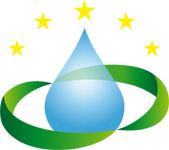
Competition offering cash prizes for the most innovative ideas that can be turned into a commercial success. The 2016 Geovation Challenge question is ‘How can we better manage water in Britain, sustainably?’
Funding body: Ordnance Survey
Maximum value: £ 20,000
Application deadline: 27/01/2016
Location: United Kingdom
Background
The Geovation Challenge was initiated, funded and managed by Ordnance Survey. Its current collaborators include Department for Environment Food and Rural Affairs, Environment Agency, OCG, Springwise and United Utilities.
Objectives of Fund
The GeoVation Challenge aims to encourage open collaboration in addressing communities’ needs where geography is a key enabler. Open innovation, data, tools and information can be combined to create new ventures which generate social and environmental value.
The current GeoVation Challenge is focused on tackling the global issues around water. The Geovation Challenge question is ‘How can we improve water use in Britain sustainably?
Value Notes
The Programme is divided into two parts:
- Part one (phases one to three over a period of six months) provides a total of £10,000 in funding.
- Part two (for those who successfully deliver a prototype at the end of this and move on to phase four which is another six months on the Programme) provides an additional £10,000 in funding.
Funding will be given during each of the phases to progress the idea to the next level.
Those who are successful at phase four will receive help in seeking extra funding so that they have more than one source of investment and can move toward product launch.
Match Funding Restrictions
Match funding is not a specified requirement.
Who Can Apply
The Challenge is open to UK based organisations and residents over 18 years of age. This includes community groups, entrepreneurs, developers, innovators and local authorities.
Those who join the Programme will be expected to spend a minimum of 20 hours per week working on their project and attending core workshops at the Geovation Hub in London.
Restrictions
The following cannot enter the competition:
- Members of the civil service.
- Individuals involved in the administration of the GeoVation Awards Programme.
Eligible Expenditure
This year’s GeoVation Challenge is focused on tackling the global issues around water.
Ideas must help address the GeoVation Challenge question: ‘How can we better manage water in Britain, sustainably?’
The Geovation Water Challenge is focusing on five themes:
- Too little water.
- Too much water.
- Poor water quality.
- Ageing infrastructure.
- Water use behaviour.
How To Apply
Deadline(s):
The deadine for submission is 27 January 2016.
Frequency: Biannual
Link to guidelines: https://geovation.uk/challenge/#challenge
Useful Links
GeoVation
http://www.geovation.org.uk/
Geovation Challenge 2015: Water
https://geovation.uk/challenge/#difference
Useful Contacts
GeoVation
Ordnance Survey
Urban Innovation Centre
1 Sekforde Street
Clerkenwell Green
London
EC1R 0BE
E-Mail: challenge@geovation.uk
If you are interested please contact the funding development team within RKEO.
 NEW date 22 & 23 October 2019
NEW date 22 & 23 October 2019















 Upcoming opportunities for PGRs – collaborate externally
Upcoming opportunities for PGRs – collaborate externally BU involved in new MRF dissemination grant
BU involved in new MRF dissemination grant New COVID-19 publication
New COVID-19 publication Conversation article: London Marathon – how visually impaired people run
Conversation article: London Marathon – how visually impaired people run MSCA Postdoctoral Fellowships 2024
MSCA Postdoctoral Fellowships 2024 Horizon Europe News – December 2023
Horizon Europe News – December 2023